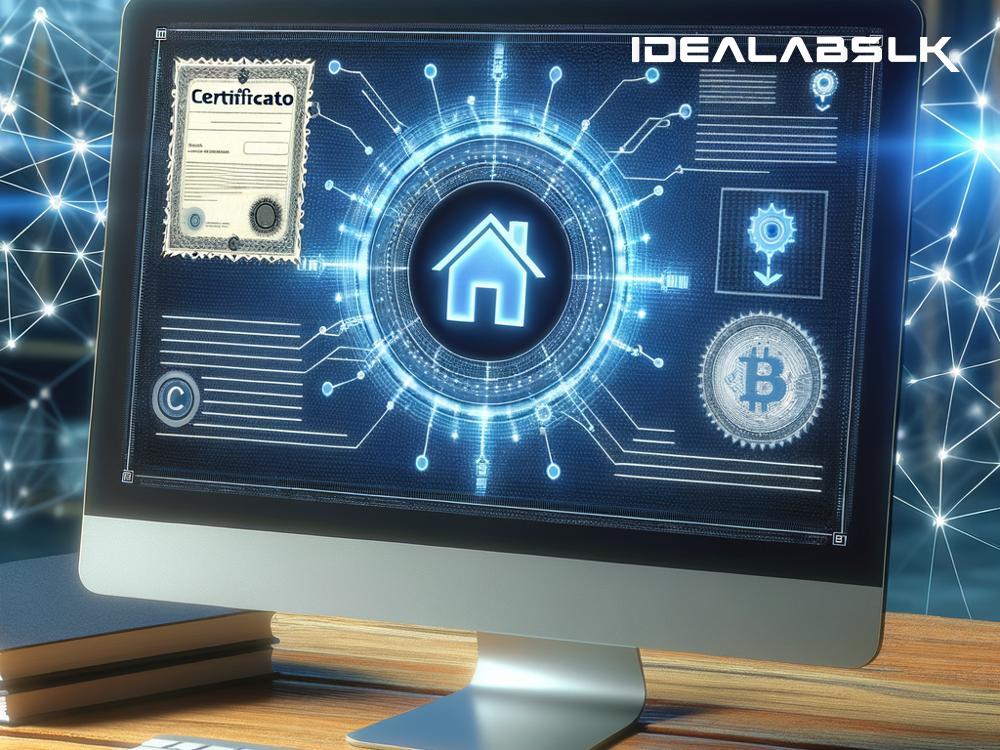Unraveling the Puzzle: Blockchain in Real Estate Ownership Verification
The real estate world is a maze of property details, contracts, and endless paperwork. Whether you're buying your first home or are a seasoned investor, you've likely encountered the headache of ownership verification. Enter blockchain technology. It might sound complex or something straight out of a sci-fi movie, but it's essentially a digital ledger system that's changing the game in real estate. Let's dive into how blockchain is revolutionizing ownership verification in simple English.
What Is Blockchain Anyway?
Imagine a high-tech, digital notebook that everyone can see but no one can erase or rewrite. This notebook, or "ledger," contains a record of transactions or ownership details that's updated in real-time. Once information is added, it's there for good, visible to everyone but tamper-proof. That's blockchain in a nutshell.
The Old School Way
Traditionally, verifying the ownership of a property involves a lot of manual processes, paperwork, and middlemen. You might need to deal with real estate agents, lawyers, government offices, and more, just to prove that someone has the legal right to sell a house. This process can be time-consuming, costly, and sometimes, error-prone. Misplaced documents or fraudulent activities can further complicate matters.
Blockchain to the Rescue
Blockchain technology offers a streamlined, secure solution to these problems. Here's how it can revolutionize real estate ownership verification:
-
Transparency: With blockchain, all transaction records and ownership details are available on a shared, public ledger. This transparency ensures that everyone involved has access to the same information, reducing misunderstandings and conflicts.
-
Security: The nature of blockchain makes it nearly impossible to alter any information once it's recorded. This dramatically decreases the chances of fraud, as forging documents or faking ownership becomes a thing of the past.
-
Efficiency: Blockchain automates and digitizes many of the steps required for ownership verification. This means no more waiting for paperwork to be processed or paying hefty fees to multiple intermediaries. The whole process becomes faster and more cost-effective.
-
Accuracy: Since the blockchain ledger is updated in real-time and is immutable, the accuracy of property records is significantly improved. Goodbye, human errors and corrupt practices.
Real-Life Applications
While the integration of blockchain in real estate is still in its early stages, several projects worldwide are showcasing its potential:
-
Sweden's Land Registry: Sweden has experimented with using blockchain to record property transactions, demonstrating the potential for quicker, more secure processes.
-
Republic of Georgia's Land Titling: In partnership with a blockchain company, Georgia has embarked on a project to secure land titles using blockchain, ensuring transparent and inviolable property records.
These examples highlight the move towards a future where real estate transactions might be as simple as pressing a button on your smartphone.
Challenges and Considerations
As promising as blockchain is, there are hurdles to its widespread adoption in the real estate sector:
-
Legal and Regulatory Frameworks: Many countries and regions lack the legal framework to support blockchain-based transactions. Developing and implementing these frameworks will take time and effort.
-
Technology Adoption: Not everyone is tech-savvy. Educating the whole spectrum of real estate players, from buyers and sellers to lawyers and agents, is crucial for successful implementation.
-
Interoperability: For blockchain to work on a large scale, different blockchain systems need to communicate seamlessly. Developing universal standards will be key.
The Future Outlook
The journey of integrating blockchain into real estate is still at the beginning. However, its potential to make ownership verification more transparent, secure, efficient, and accurate is undeniable. As technology advances and more stakeholders come on board, we can anticipate a future where buying a house might be as straightforward and secure as making an online purchase.
In Summary
Blockchain technology holds the promise of revolutionizing real estate ownership verification. By making processes more transparent, secure, efficient, and accurate, it paves the way for a smoother, more reliable real estate market. Challenges remain, but the future looks bright for blockchain and real estate. As we progress, one thing’s for sure: the maze of property ownership is about to get a lot more navigable.

